
- This event has passed.
SfN ABSTRACTS DUE!
May 3, 2018
Abstracts for the annual Society for Neuroscience (SfN) conference are DUE Thursday, May 3 by 5pm Eastern Daylight Time (EDT)…
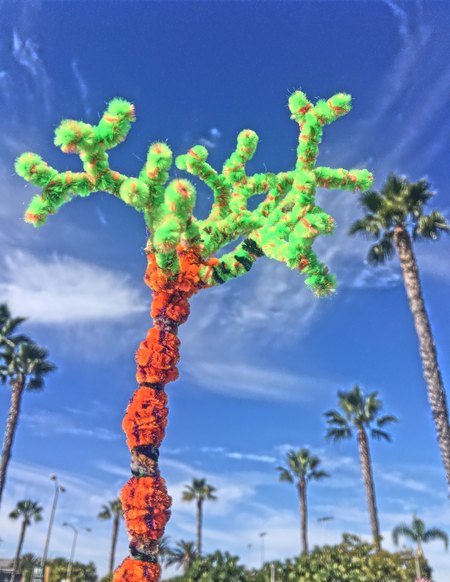
LEARN MORE: Call for Abstracts
SEE WHAT WE DID LAST TIME IN SAN DIEGO…
A network grows in San Diego
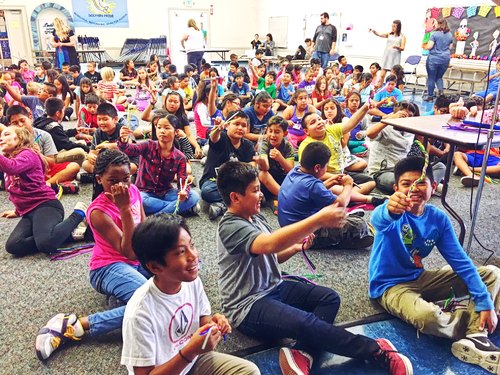
NW Noggin is submitting an abstract for the conference, which is scheduled for November 3 – 7 in San Diego, California. An evolving draft version is below…

NW Noggin: homelessness and the brain – seeing us all through research and art
GRIESAR, W.S.* **, LEAKE, J.* ** ***
“It’s like people see me as an object, not as a human being.”
Science needs investment, and engaging people builds support for research and education. Integrating arts in STEM (“STEAM”) fosters innovative engagement. Here we report on efforts to bring together new researchers and outreach volunteers, clinicians, policy makers and, as equal participants, young members of our community who lack safe, secure places to call home.
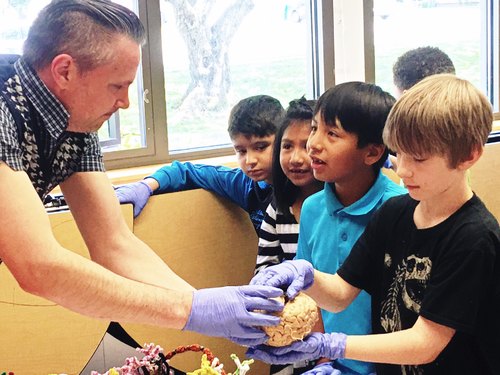
Nonprofit NW Noggin (nwnoggin.org) organizes graduates and undergraduates to collaborate and engage, building networks and inspiring people about discovery in neuroscience and art. Volunteers benefit from working across disciplines and institutions, serving as “near peer” role models, gaining skill explaining work and thinking creatively about careers. We’ve met with over 20,000 K-12 students since 2012!

Noggin loves to visit p:ear, a nonprofit for homeless youth. P:ear offers community, services, and a welcoming educational and gallery space in Portland, Oregon, filled with caring staff and volunteers for young people without safe places to sleep.
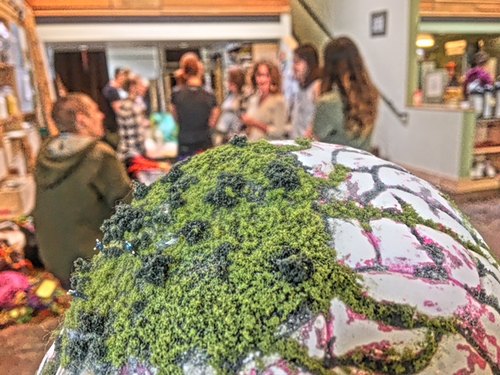
We’ve had powerful conversations with adolescents struggling to overcome drugs, anxiety, depression, abandonment, bias – and a strong sense that many people pass them by as if they weren’t valuable human members of our community.
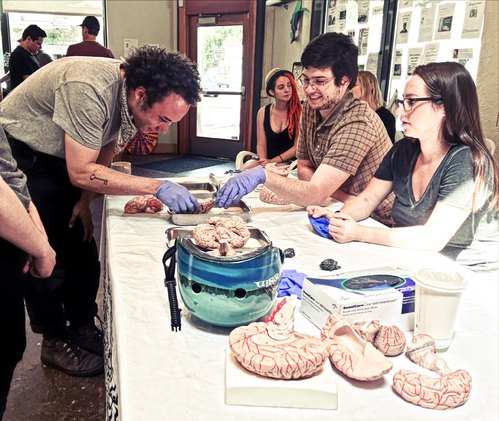
Harris & Fiske (2006) found that people respond harshly to those in “extreme outgroups,” including those without homes. These street kids are correct – some respond to them with “dehumanized perception.” Yet by asking subjects to engage with images of outgroup members, there is more activation of frontal lobe networks essential for responding to others as relatable human beings. Young people at p:ear created landscapes on plaster brain casts that powerfully conveyed their feelings, significant locations, and both actual and aspirational aspects of their lives in our shared community.

In fall 2017, we put on a “Homelessness and the Brain” day at p:ear, and policy makers, clinicians, members of the public, young researchers from OHSU and PSU and houseless youth talked, listened and learned from each other about research on stress, anxiety, depression, sleep, emotional regulation, drugs, development, bias and resilience, and explored data, art and testimony from p:ear youth to illuminate links between a lack of affordable housing and all our brains.
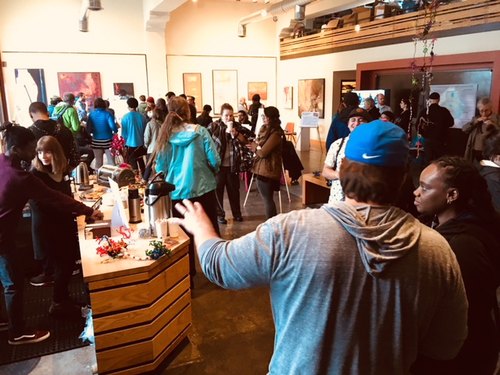
LEARN MORE: Landscapes of the Brain: Seeing us all through research & art
Building excitement and awareness of discoveries in neuroscience through arts-integrated outreach across institutional, state, federal and generational lines trains new scientists to collaborate on important community concerns, and increases awareness and support for investment in brain research and the arts.

* Department of Psychology, Portland State University; ** NW Noggin (nwnoggin.org); *** Department of University Studies, Portland State University



